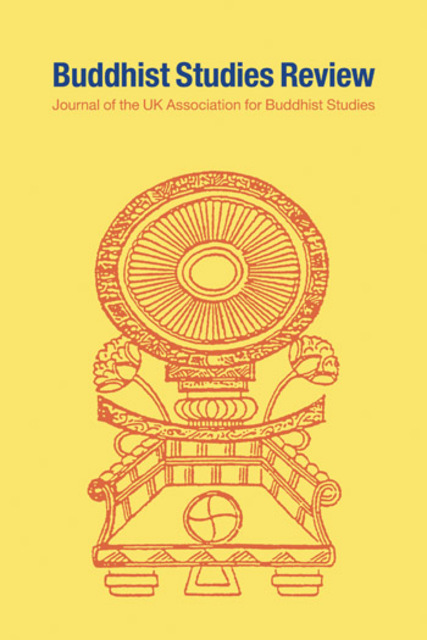‘I’ without ‘I am’: On the Presence of Subjectivity in Early Buddhism, in the Light of Transcendental Phenomenology

Full description
Investigating the Pali suttas, compiled prior to the development of Abhidhamma, from a phenomenological perspective reveals an internally coherent and consistent doctrine/theory whose crucial theme is the intentionality and subjectivity of consciousness. Reductive interpretations tend to interpret the basic Buddhist principle of ‘non-self ’, and its correlative repudiation of the concept/conceit ‘I am’, as entailing a rejection of any genuine (phenomenological) meaningfulness for the term ‘I’ as a legitimate expression of subjectivity, intentionality, and consciousness. Indeed, it is occasionally even claimed that Buddhas and Arahants cannot possess subjective intentional consciousness at all. In the following reflections, then, a few key aspects of an alternative (phenomenological) perspective upon early Pali Buddhism are introduced and sketched out, whereby it is argued that the presence of subjective intentional consciousness, even in the case of Buddhas and Arahants, is not only presupposed by the suttas, and is not only quite unproblematic for early Buddhist doctrine/theory, but is also actually of fundamental importance for the very possibility of Buddhist truth and practice. Thus, early Buddhist doctrine/theory is not only non-reductive; it also eminently invites a deep dialogue with, and a serious and detailed interpretation from the perspective of, Transcendental Phenomenology.
- typeImage
- created on
- file formatjpeg
- file size82 KB
- container titleBuddhist Studies Review
- creatorKhristos Nizamis
- issn1747-9681 (online)
- issue29.2
- publisherEquinox Publishing Ltd.
- publisher placeSheffield, United Kingdom
- doi
We use cookies to analyze our traffic. Please decide if you are willing to accept cookies from our website. You can change this setting anytime in Privacy Settings.
